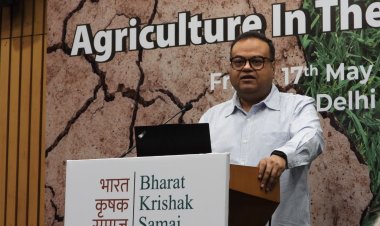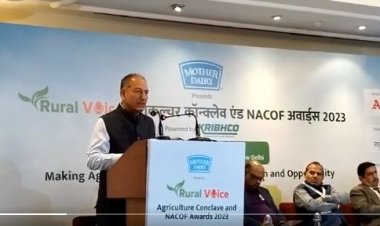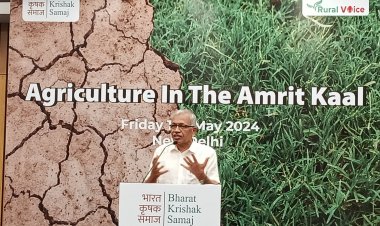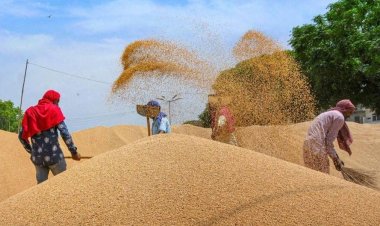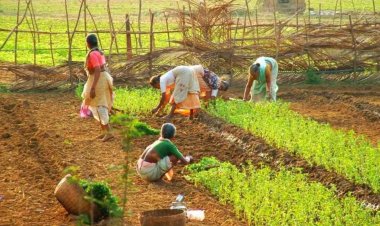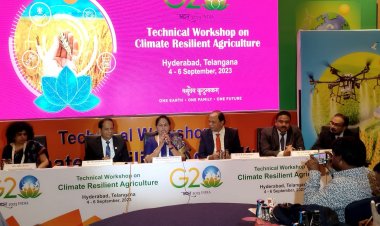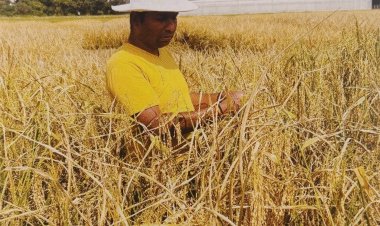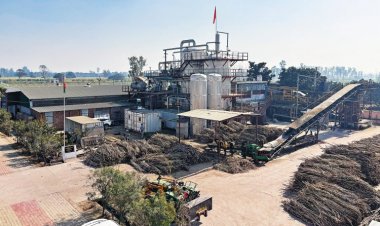Uttarakhand Minister Dhan Singh Rawat Honors Winners in Four Categories at the Rural Voice Agriculture Conclave
At the Rural Voice Agriculture Conclave and NACOF Awards 2024, individuals and organisations excelling in the field of agriculture were honored across four categories: farmer, cooperative institution, social organisation, and public institution. The awards were presented by Uttarakhand's Minister for Education and Cooperatives, Shri Dhan Singh Rawat.
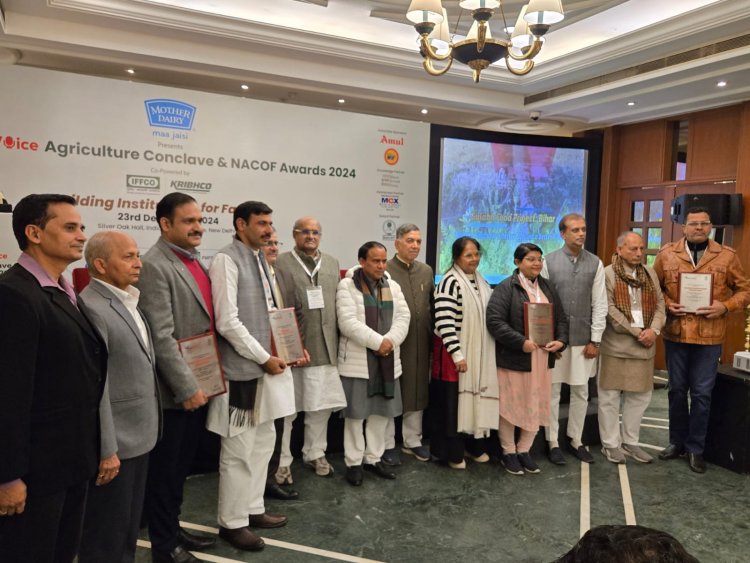
At the Rural Voice Agriculture Conclave and NACOF Awards 2024, individuals and organisations excelling in the field of agriculture were honored across four categories: farmer, cooperative institution, social organisation, and public institution. The awards were presented by Uttarakhand's Minister for Education and Cooperatives, Shri Dhan Singh Rawat.
Award in the Farmer Category: Umesh Kumar
Umesh Kumar, a farmer from Bhainswal village in Shamli district, was recognised for his significant contributions to agricultural development in his region. He pioneered organic farming without chemical fertilizers and achieved yields comparable to conventional farming. With support from the Uttar Pradesh government, he learned trench farming techniques for sugarcane in Maharashtra and introduced them in Shamli, becoming the first farmer in the district to adopt this method. He also inspired 25-30% of the district's farmers to follow suit.
A member of the Shamli District Board, Umesh Kumar practices organic farming of sugarcane, rice, wheat, mustard, chickpeas, as well as fruits and vegetables. Addressing the pressing issue of stubble burning, he uses mulching for sugarcane and rice stubble in his fields. Additionally, he employs vermicomposting instead of chemical fertilizers and conserves water through drip irrigation.
Award in the Cooperative Category: Uttarakhand Cooperative Silk Federation Limited
Established in 2002, the Uttarakhand Cooperative Silk Federation was envisioned to address challenges in marketing and timely payment for raw silk producers in the state. The award was accepted by the Federation's Managing Director, Anand Shukla.
In collaboration with the Central Silk Board of India and the state government, the Federation created a revolving fund of Rs 2 crore to ensure prompt payment to silk rearers. The Federation also recommends minimum support prices for silk annually.
Working across the entire silk value chain, the Federation has adopted the farm-to-fashion concept, initiated high-quality silk thread production, and consolidated all post-cocoon activities under one roof. Currently, around 6,000 silk rearers and 210 associated weavers are connected with the Federation.
Award in the Public Sector Institution Category: NCDC
The National Cooperative Development Corporation (NCDC) has significantly contributed to strengthening the cooperative sector since its establishment in 1963. The institution finances projects in agriculture production, processing, marketing, storage, and import-export. NCDC provides loans and grants to state governments for financing primary and secondary cooperative societies. Expanding into rural, industrial, and cooperative sectors, NCDC operates through 18 regional and state-level directorates across the country.
Award in the Social Sector Institution Category: Sulabh International School of Action Sociology and Sociology of Sanitation (SISASSS)
Founded in 1993 by renowned social reformer Dr. Bindeshwar Pathak, SISASSS views sociology as a medium for social change. The institution has been committed to empowering marginalized communities, particularly the children of sanitation workers, by providing quality education and skill development opportunities. The award was accepted by Kumar Dilip, President of the Sulabh Movement.
Sulabh International School aims to build a future where education, equality, food security, and a healthy environment are accessible to all. It leads menstrual hygiene initiatives across the country and provides care for destitute widows in historical cities like Vrindavan and Varanasi.
The institution has also launched significant initiatives in agriculture, promoting food security, climate resilience, and sustainable farming practices to transform the lives of women farmers. Sulabh has empowered over 2,500 women in Maharashtra to take control of their food systems, creating indigenous seeds, establishing seed banks, and producing value-added millet products. This success has been replicated in Bihar's Darbhanga and Madhubani districts, where women farmers are driving change independently.



 Join the RuralVoice whatsapp group
Join the RuralVoice whatsapp group


















